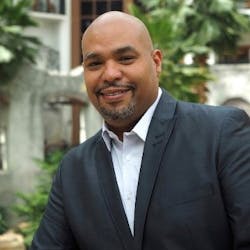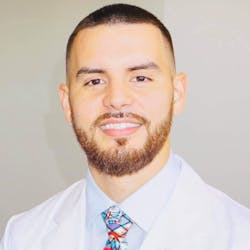There are male hygienists among us
Introduction by Rafael Rondon
The dental hygiene profession requires agility, tenacity, patience, passion, compassion, dexterity, critical thinking, and excellent communication skills—just to name a few. Although these characteristics are common among both male and female hygienists, the makeup of the profession continues to be dominated by women. The focus of this article is to introduce a few of the male hygienists in the field and show how similar we all are, bridging the gap toward understanding our colleagues.
Male hygienists—a brief history
The first male hygienist graduated from the University of New Mexico in 1965—Jack Orio, RDH. Concurrently, the word “female” was deleted from the American Dental Hygienists’ Association (ADHA) Constitution and Bylaws.1 Although male hygienists are growing in number, the saturation percentages have moved ever so slowly. With that said, enrollment of male dental hygiene students is growing in some states. According to the American Dental Education Association, 5.3% of students currently enrolled in an accredited dental hygiene program are men.2 This percentage has grown 129% from 2001 to 2017, according to a recent survey conducted by the American Dental Association (ADA) survey center.3
We are on the same side!
From the perspective of males, female hygienists experience challenges that male hygienists do not, and men could not possibly begin to understand some of those struggles. But male hygienists have unique challenges as well that impact them a little differently. This is not intended to be a comparison, simply informative.
Some of the top problems male hygienists experience are:
- Overcoming the historical female hygiene model
- Regularly being referred to as “she” or “her” when talking about hygienists in general
- Discomfort with being viewed as the dentist (and then having to explain they aren’t)
- Annoyance with the pink and purple colors that are ever-present from marketing to instruments and everything in between
- Patients’ preferences for female hygienists without giving males a chance
- Assumptions that male hygienists will be too rough or too aggressive with instruments
The journey of male hygienists into the profession is also very similar to that of many female hygienists. Let’s meet three male hygienists and find out how you relate to each!
From Rafael Rondon, BS, RDH
Choosing a career path is not easy for everyone, but from the moment I walked into a room full of dental chairs, I immediately felt inspired to pursue a dental hygiene career. I attended Hostos Community College in the Bronx of New York for dental hygiene school.
I am continually learning and developing professionally and personally as a hygienist, and I’ve discovered that in this profession, or any other, success does not depend on your gender or background. I have learned that success is determined by skills and desire. It is something you can control, given the right environment, support, self-confidence, and courage.
I eventually began practicing in a dental group practice in Florida. As the hygiene coordinator, I had the wonderful opportunity to support my dental hygiene colleagues. In this role, I was responsible for helping develop the skills of my colleagues, and together we had the goal of providing the best standard of care to our patients.
After working as a hygiene coordinator for a year, I was given another opportunity to train and mentor other hygienists as the hygiene administrator in the organization. At that point, it was a full-time position that demanded time away from the chair.
Years passed and I was hired by another dental organization, where I continued to grow as a regional hygiene mentor. In this role, I was able to coach and mentor hundreds of hygienists in six states throughout the organization. Years later, I was promoted to director of operations for an affiliate of the group, where I was then able to learn the operational and business side of dentistry.
It has been 30 years since I graduated in that class of two men and eight women (out of the original 54). I now serve as the vice president of dental hygiene operations for Coast Dental. I appreciate having the ability to train, coach, and inspire other hygienists in these organizations. When you put your heart into what you are doing, patients will trust you and accept your recommendations.
In 2015, I started Mr. RDH. As the founder and CEO of this organization, my mission is to create a platform for male hygienists around the world to be able to network, discuss, and influence factors that affect men as dental hygienists. I also want to capitalize on the contributions made by our profession and illustrate the attributes of males within the profession, whether clinically or administratively. I want hygienists to value their profession and the services they provide. In doing so, we can offer the best possible care to our patients moving forward.
Mr. RDH does not exclude women. In fact, most of the industry leaders are female, and we have created amazing partnerships with so many of them. We can only be successful when we are working in tandem with our female colleagues to identify areas of improvement and solve the unique challenges that exist for us as hygienists.
Mr. RDH is intended to serve as an advocate on both local and national levels. This community will continue to play a great role in changing the public’s perception through education and the shared experiences and accomplishments of its members. Furthermore, Mr. RDH will partner with other entities to ensure full participation of men in the hygiene profession and its organizations.
I am honored to know many male hygienists who have contributed to the profession in so many ways.
From Alex Bajer, CRDH, CDA
My journey into the dental hygiene profession was not typical. Having dropped out of high school at age 16, I received my GED and enrolled in college. But I felt as if I was wasting my time. A couple of failed semesters fueled by a lack of direction were seemingly the last of my college experience.
I began looking into different career paths with my then- fiancé, now wife and loving mother of two beautiful daughters, Yanira and Echo. A list of different career paths scrolled across my computer screen, but I didn’t see any that seemed worthwhile to pursue. I began to lose hope.
In my search, I came upon dental hygiene and immediately remembered all the dental visits I had when I was younger and how I would find myself staring into the glasses of the person treating me to see the reflection of what was going on. It always intrigued me. Looking at the relatively short educational path toward this profession, it made sense for me to pursue dental hygiene. I was near the end of my 20s, and I made the difficult decision to abandon my full-time, steady-income job and enroll in a full-time dental hygiene curriculum.
I had never experienced such an appetite for learning as I did with dental hygiene, and I soon knew this was my calling. Many experiences throughout school solidified my drive and passion for this profession. I will never forget having to fight back tears after having a patient tell me how grateful he was that I had taken the time to sit and explain things to him like no one ever had. I was overwhelmed with emotion, and at that moment I knew I had made the right career choice.
After graduating as class president from Broward College in August 2019, I began a full-time position with Sage Dental. I proudly serve as the hygiene mentor for my region and love being able to share my knowledge and passion with my colleagues. Realizing how many lives I’ve touched in such a short time makes me strive to become the best oral-health advocate I can be. My patients often leave their appointments saying how grateful they are for the education I’ve provided about the periodontal disease process and how to successfully prevent it. I’ve seen drastic changes in my patients’ periodontal health and attitudes toward controlling their periodontal health status.
I feel as though my love and commitment to this profession would not be what it is today without the amazing faculty at Broward College. I’m currently working on the completion of a bachelor of applied science in dental hygiene degree, so I can become an educator to the future clinicians who will serve our community. No health-care profession can provide a greater impact on total body health than dental hygiene. Education is the key.
From Andrew Johnston, BSBM, RDH
“I am not good enough!” This was my mantra and motto for decades. Hello, my name is Andrew, and I am a chronic self-doubter and insecure hygienist.
My experiences as a hygiene student are enough for several more articles, but the cycle of checking and rechecking processes and knowledge and supplies and posture and fulcrum and . . . and . . . fully prepared me for my first job as a new graduate. They were critical to say the least, and rightfully so. My previous jobs had instilled in me the culture of responsibility that we, as health-care providers, have toward our patients. Dr. Rodriguez, one of my dentist-employers, would stop me daily in the hallway to quiz me on a patient’s weight and maximum safe dosages with mixed anesthetics. It really put things into perspective; we have an awesome opportunity!
After several years of private practice, I moved to a company with an organized support structure, and I immediately felt at home. All of the times of monitoring and measuring metrics in my nondental years had set me up for success. I loved to monitor my personal growth, spot trends, and strive for the competition of trying to be the best. I loved the objectivity the numbers represented, which caused many of my insecurities and self-doubt to fade away. I was happy! I was making good money, had good job security and benefits, my family was happy . . . but suddenly I got an urge that wouldn’t go away. I needed more. I had met all of the metrics we needed to be one of the top offices in the company with huge strides of improvement, but that just wasn’t enough. I tried a job relocation, started a podcast media company, and went back to school again, but nothing made this feeling go away with any kind of permanency.
And then I figured it out.
This journey that we are on as hygienists is meant to be ever changing and ever evolving, and that means different things to different people. I was chasing what I thought was a finish line, but that final “you’ve won” moment never came. We are not all meant to get out of the operatory; rather, we are meant to be self-critical and constantly improving in our station. The term “lifelong learner” is uniquely perfect for what the dental hygiene profession represents. Those years of self-doubt created a fire inside me to constantly improve and help my patients receive the best care they possibly can from me.
Now, I am director of hygiene at a large DSO based in Florida. Founded in 1992, Coast Dental and Orthodontics is a pioneer of the DSO industry and a powerful industry player in the United States. We provide business management and support to 111 dental practices in the Southeast. We are committed to staying on the cutting edge of clinical information and technology.
Conclusion
While males and females both have their share of hurdles to overcome, we are united in the profession. We are more similar than we are different. We are your colleagues and your friends, and regardless of how anyone else treats us, we need to remain united. We ask you to join us in standing up for our profession and treating our patients through ethical prevention-based models.
Stay tuned to RDH magazine each month as we see more articles written by our male colleagues!



